
In German we have a saying that goes like this: ‘Wobbly tooth, wobbly soul’. My eldest, who is seven, has at least three wobbly teeth at the moment. That gives you an idea about his emotional balance. Or should I say imbalance? His unpredictable mood swings feel like a hard ride on one of those very big rollercoasters. Each yeeeaaaaaahhhh-that’s -so-much-fun-moment, follows an oooooh-noooooo-crash. Or the other way around. Or just many oooooh-noooooo-crashes at once.
Most children will go through them: meltdowns, tantrums, emotional breakdowns. And it’s always up to us parents how we deal with them. And, yes, it’s not only the typical two-year-old who throws herself onto the floor in protest; it can happen to your seven-year-old or teenager too (well, maybe not the throwing-onto-the-floor-thing anymore).
As I said, my eldest is not quite himself at the moment. He gets very tense and easily frustrated when he thinks he can’t do something (he’s into chemical experiments right now, and yes, you need a lot of patience there). He will scream and shout or just have another (aggressive) argument with his younger brother. All that and more usually between 8am and 8pm. Every day. And here comes the challenge: when he gets loud, aggressive or frustrated, then my initial feeling is – he needs my help and I’m right there to support him. But this becomes such a hard task when it goes on and on. By the afternoon and after a few of those meltdowns, my first inner response is something like ‘Stop!!! I can’t take this anymore! Leave your brother alone!’ And the like. Not very empathic, eh?
I admit that often enough I feel exactly like that: instead of pouring empathy, love and kindness into my son’s empty glass of emotions, I would give him a stern look and a firm ‘stop’ or ‘no’. The trouble here is, my firmness (or helplessness) won’t give him what he actually needs and cries out for: connection and unconditional love. If he feels both of that he will be able to manoeuvre through all meltdowns and difficult times in the whole world. If not, he will probably feel guilty and might think something is wrong with him.
Giving my child lots of love when he’s behaving like a cage man? Yes. And the reasons are simple and indeed logical: My son does NOT want to annoy me or anyone else. That’s my mantra and it should be every parent’s. He is learning. Every day, every moment. He figures out about social interactions , boundaries, emotions, feelings, skills and so on. His meltdowns are cries for help, saying ‘Papa (or Mama, of course) I can’t take this anymore. I’m confused. I’m frightened. I missed you all day. I’m tired. I’m …’ well, pick your own.
You and I (the parents) have to come to terms with the fact that our children respond so much better to connection, love, and empathy than to commands, isolation, and blame. From observations and talking to parents I can say that many react to a child’s ‘misbehaviour’ by sending the child to his bedroom. That goes with the message he should do some THINKING! Well, that is, quite frankly, bonkers. Why should an angry or upset seven-year-old suddenly start thinking like ‘oh yes, dad is right. I really screwed up here and I deserve sitting in my bedroom on my own. OK. I just calm down and then I go down to apologise.’? Really?
Connection, love and offering help is the better answer. Yes, your child might want and need his space for a moment. That’s often like that with my son. Before he is able to accept my closeness, he asks for his own space. And I have to respect hat. But that also means I’m still there for him if he wishes to connect.
Recently I attended a brilliant talk by Parenting by Connection Instructor Stephanie Parker (Hand in Hand Parenting). She talked about great tools and strategies in staying close and supportive when your child is going through difficult times. She stressed the importance of being there. Offering hugs and cuddles. Don’t leave your child alone or sent him away. Even if he chooses to be in his bedroom, you can wait by the door and say things like ‘I’m here for you. I love you.’
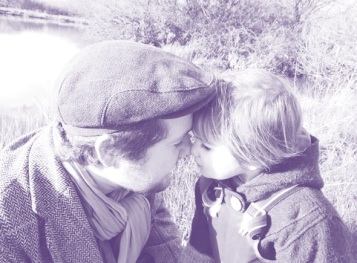 Another great idea Hand-in-Hand Parenting suggest, is to have Special Time with your child. It can be as simple as having five, ten, or fifteen minutes of undisturbed playtime. And, here comes the trick, your child is in charge. He is the boss telling you what you both do at Special Time. If he wants to play his favourite game with his made-up-rules, it’s your call. Of course, Special Time doesn’t mean you do dangerous things or spend £2,000 on toys at online shops. No. Special Time gives your child the chance to feel more empowered (how often is it the other way around?). And for you it’s a beautiful moment to truly (re)connect with him. It’s like filling up your child’s emotional cup with confidence, love, and trust. Using Special Time regularly can help to prevent meltdowns and tantrums.
Another great idea Hand-in-Hand Parenting suggest, is to have Special Time with your child. It can be as simple as having five, ten, or fifteen minutes of undisturbed playtime. And, here comes the trick, your child is in charge. He is the boss telling you what you both do at Special Time. If he wants to play his favourite game with his made-up-rules, it’s your call. Of course, Special Time doesn’t mean you do dangerous things or spend £2,000 on toys at online shops. No. Special Time gives your child the chance to feel more empowered (how often is it the other way around?). And for you it’s a beautiful moment to truly (re)connect with him. It’s like filling up your child’s emotional cup with confidence, love, and trust. Using Special Time regularly can help to prevent meltdowns and tantrums.
Another way to show a more positive attitude is something psychologist Oliver James calls “Love Bombing”.
It could work like this: Spend this Saturday with the motto ‘Let your child decide!’ Yes, everything: from when he wants to get up in the morning (hey, he might choose to stay in bed until lunchtime, so you have the morning to yourself), then the activities he chooses for the daytime, his favourite food, to the point he decides it’s bedtime (agreed, it could be late!).
Oliver James says “I developed Love Bombing to reset the emotional thermostats of children aged from 3 to puberty. It gives your child a very intense, condensed experience of feeling completely loved and completely in control”. He advises to have a go at Love Bombing for a day or two or even a shorter period, followed by daily half hour slots devoted to it.
Both ideas can help you and me to feel more connected to our children. I’ve tried them and I can assure you that my son (and other children too) always felt so much lighter, happier and confident afterwards. Yes, tantrums and meltdowns are still part of my parenting journey and they always will be. I have to accept that and breathe calmly through those moments. When I see him arguing and fighting with his younger brother, then I remember that he is preparing for social interactions in the real world. At home he can test out things safely.
However, I also feel I am allowed, every now and then, to voice my feelings about his tantrums, too. Maybe not right there in the moment, if that doesn’t feel right. But it’s authentic and important to let our children know the effect their behaviour has on other family members. So, for example, I can say: ‘I feel unable to listen to you at the moment. My head hurts and I need some space for myself right now. Later on we can talk again (have a cuddle, enjoy a story together…etc.).’
And, again, my son is NOT meaning to annoy me. He’s not giving me a difficult time, he is going through one. I need to be there to hold and hug him (if he wants to be hold). Reassuring and loving words will guide him. And, yes, the wobbly teeth and wobbly-soul-moments will pass.
Wanna read further? Get my book ‘The Empathic Father’.




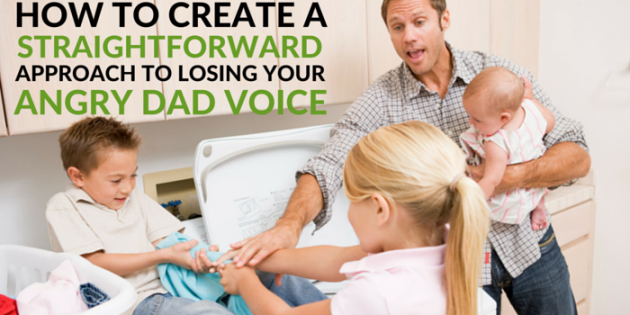
 Read, what Ian says about himself: “I have a passion for personal growth and inspiring others to reach their full potential. With a
Read, what Ian says about himself: “I have a passion for personal growth and inspiring others to reach their full potential. With a 
 Another great idea
Another great idea 


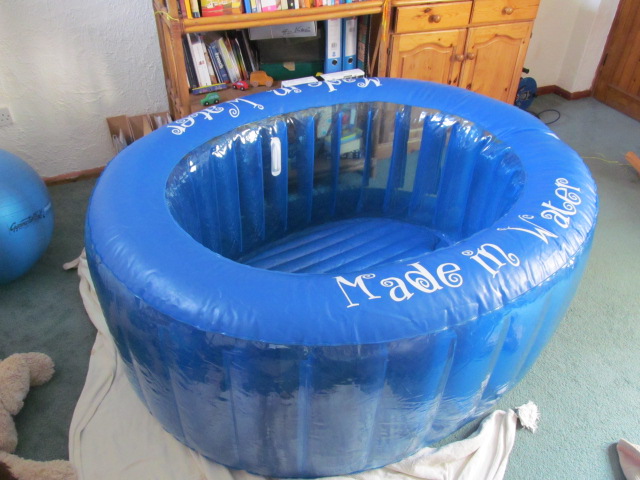 It’s so important: the time prior to a birth. Families and couples prepare themselves for the big moment. Ideally everything should be in place and ready for the moment when the baby decides it’s time to enter this world.
It’s so important: the time prior to a birth. Families and couples prepare themselves for the big moment. Ideally everything should be in place and ready for the moment when the baby decides it’s time to enter this world.
 ‘When is the baby coming? Today? Now? I want the baby to come now!’ – These words are being said by my nearly 4-year-old every day. Every day for the last three months. You see, there is a little pressure and some expectations on us – the parents – or, to be more precise, on my wife. Come on, bring the baby on!
‘When is the baby coming? Today? Now? I want the baby to come now!’ – These words are being said by my nearly 4-year-old every day. Every day for the last three months. You see, there is a little pressure and some expectations on us – the parents – or, to be more precise, on my wife. Come on, bring the baby on! We also try to involve our children in the whole pre-birth celebrations. They love to use the natural belly massage oil (the more the better) and when the younger one can’t wait for his turn to massage, he then has a go at my belly (bliss). Or the other day they both helped me by inflating the birthing pool. Of course the hosepipe had to be tested and this way they found out that they can use it as a mega cool telephone…
We also try to involve our children in the whole pre-birth celebrations. They love to use the natural belly massage oil (the more the better) and when the younger one can’t wait for his turn to massage, he then has a go at my belly (bliss). Or the other day they both helped me by inflating the birthing pool. Of course the hosepipe had to be tested and this way they found out that they can use it as a mega cool telephone…
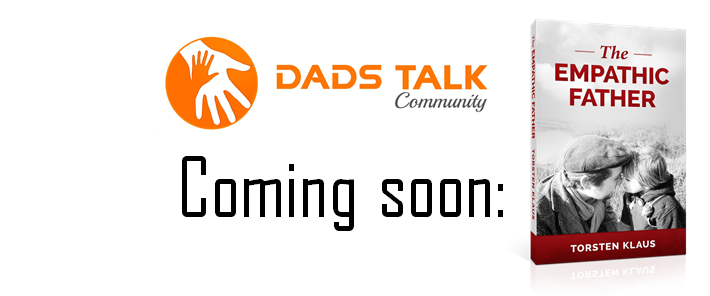
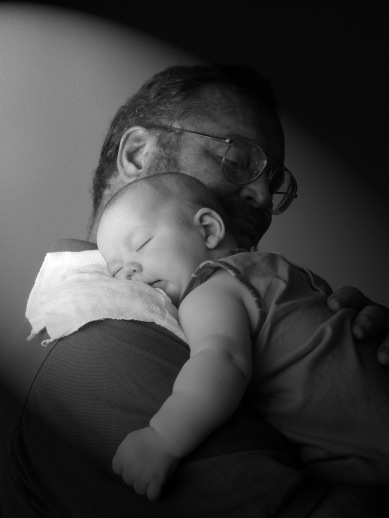 Gideon Burrows, author of Men can do it too argues: “Today, to be a good dad should mean doing a fairer share of the baby work. Not just the high-profile nappy changes and the bedtime story reading, but an equal share of the slog and the career sacrifice mothers put up with.” The changes in UK paternity leave in 2011 were not met by a huge upheaval and change. Less than 1% of fathers take advantage of additional paternity leave of up to a total of 26 weeks. Reasons for this are complex. Some argue, they simply can’t afford to, others suggest they don’t want to opt out of the role of the man as the main breadwinner or because they are afraid their career might suffer, having lasting effects on their family’s financial situation. I know it is possible for many to reorganise their life to fit a family friendly career, although I do recognise this does require some support. New legislation provides that from April 2015 men and women can share parental leave in the first 12 months of their baby’s life, wanting to make it easier for new dads to take the time off.
Gideon Burrows, author of Men can do it too argues: “Today, to be a good dad should mean doing a fairer share of the baby work. Not just the high-profile nappy changes and the bedtime story reading, but an equal share of the slog and the career sacrifice mothers put up with.” The changes in UK paternity leave in 2011 were not met by a huge upheaval and change. Less than 1% of fathers take advantage of additional paternity leave of up to a total of 26 weeks. Reasons for this are complex. Some argue, they simply can’t afford to, others suggest they don’t want to opt out of the role of the man as the main breadwinner or because they are afraid their career might suffer, having lasting effects on their family’s financial situation. I know it is possible for many to reorganise their life to fit a family friendly career, although I do recognise this does require some support. New legislation provides that from April 2015 men and women can share parental leave in the first 12 months of their baby’s life, wanting to make it easier for new dads to take the time off.

 I’m 34 with two children, my son is 2 and my daughter is not even 2 months yet. I’ve been married almost 4 years. I’ve taught English overseas and I love sports, but once I had my first child I became more interested in parenting, obviously. I went to the University of Colorado and majored in Philosophy.
I’m 34 with two children, my son is 2 and my daughter is not even 2 months yet. I’ve been married almost 4 years. I’ve taught English overseas and I love sports, but once I had my first child I became more interested in parenting, obviously. I went to the University of Colorado and majored in Philosophy. In my series about inspirational fathers, I would like to introduce to you Anthony Eldrigde-Rogers. Anthony lives with his partner and their three unschooled children in Italy and he’s interested in many, many exiting things: He has been involved in photography, film making, commercials production, pop videos, producing, directing….marketing PR, environmental projects….writing screenplays…then there was farming fruit and having a restaurant…to name but a few. He has always been interested in people, how people live and make sense of their lives. Now Anthony is working as a Recovery and Wellness Coach…. he trains coaches, and is writing a book (soon to be published), plus various plants for retreats and… you see, the list is long!
In my series about inspirational fathers, I would like to introduce to you Anthony Eldrigde-Rogers. Anthony lives with his partner and their three unschooled children in Italy and he’s interested in many, many exiting things: He has been involved in photography, film making, commercials production, pop videos, producing, directing….marketing PR, environmental projects….writing screenplays…then there was farming fruit and having a restaurant…to name but a few. He has always been interested in people, how people live and make sense of their lives. Now Anthony is working as a Recovery and Wellness Coach…. he trains coaches, and is writing a book (soon to be published), plus various plants for retreats and… you see, the list is long!
 Those trips were and are gorgeous. Not only do we get the chance to slow down and chill and just have a bit of quiet but we get to have a conversation for as long as we want without getting interrupted! Yay! That’s adult gold.
Those trips were and are gorgeous. Not only do we get the chance to slow down and chill and just have a bit of quiet but we get to have a conversation for as long as we want without getting interrupted! Yay! That’s adult gold.
 But that’s exactly what I want for my kids: that they can show commitment, passion and curiosity. I want them to explore, to discover and to learn without the fear of failing or not succeeding. Yes, they will make mistakes and yes, they will learn from those. They don’t need my or anyone else’s judgements to get better at things. They need people’s authentic feedback, to help them review and change and try something else. I’ll guide and support them as good as I can, but in the interest of their self-esteem and their confidence, I choose not to (over)praise. I want them to become gentle and caring members of society, without being dependent of others’ approval or expectations.
But that’s exactly what I want for my kids: that they can show commitment, passion and curiosity. I want them to explore, to discover and to learn without the fear of failing or not succeeding. Yes, they will make mistakes and yes, they will learn from those. They don’t need my or anyone else’s judgements to get better at things. They need people’s authentic feedback, to help them review and change and try something else. I’ll guide and support them as good as I can, but in the interest of their self-esteem and their confidence, I choose not to (over)praise. I want them to become gentle and caring members of society, without being dependent of others’ approval or expectations.